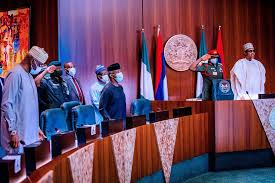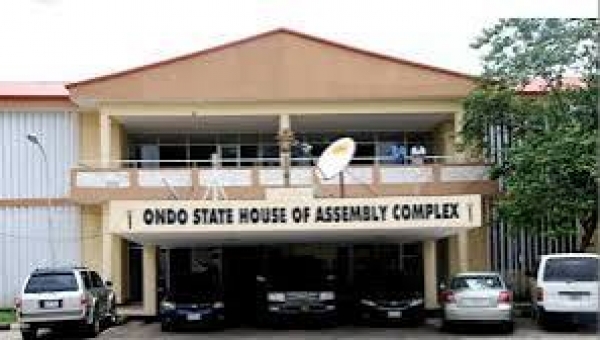Subsidy: FEC approves 2022 Appropriation Amendment Bill for transmission to NASS

The Federal Executive Council (FEC) has approved request for amendment of the 2022 appropriation batch to be transmitted to the National Assembly.
The meeting of the council, presided over by President Muhammadu Buhari, on Wednesday in Abuja, also approved N52.8 billion for the completion of three roads across the country.
The Minister of Finance, Dr Zainab Ahmed, who alongside the President’s Senior Special Assistant on Media and Publicity, Malam Garba Shehu, revealed these when they briefed State House correspondents on the outcome of the council meeting.
According to Ahmed, part of the requests of the executive in the proposed 2022 appropriation amendment is for clauses 10 and 11 to be repealed because they contravene provisions of the fiscal responsibility and finance Act 2021.
She said: “The memo we presented to council today has to do with a request for approval of the 2022 Appropriation Amendment.
“If you recall, when the President signed the 2022 Appropriation into law on the Dec. 31, he had raised some concerns in some of the provisions in the budget and had indicated that he will be submitting an amendment proposal to the national assembly for them to effect improvements in what has been done to the budget.
“So today, council took that amendment proposal and I just want to report that part of the requests that council has approved today is for the national assembly to repeal clauses 10 and 11.
“Clause 10 is referring to a provision that has been made that will enable the EFCC and NFIU be able to take 10 per cent of whatever collections that they recover.
“We’re asking for that to be repealed because this is in direct contrast to the Acts of these two agencies and also, it is in contravention of the Fiscal Responsibility Act and the Finance Act 2021.
“Clause 11, on the other hand, is a provision that has been made that says that the Nigeria embassies and missions are now authorised by this Appropriation Act to expend funds allocated to them under Capital Components without the need to seek approval of the Federal Ministry of Foreign Affairs.
“This again, in a view, and council agreed, is inconsistent with financial regulations and also inconsistent with the provisions of the Public Procurement Act. So, we are asking for this to be repealed. ”
On the much debated removal of subsidy on Premium Motor Spirit (PMS), the minister said about N3 trillion would be required to continue paying for subsidy.
She, however, stated that government was looking at ways of scaling down the amount.
“The Petroleum Industry Act (PIA) had required that all petroleum products should be deregulated within six months of signing the PIB into law. And the six months would have meant from August to February. But when we were doing the budget we stretched that to June.
“But having to step back and take into account the realities of today, what it means is we have to go back and amend the PIA. So, the Ministry of Petroleum Resources will be leading on that.
“They had indicated that they will be asking for amendment to extend it to 18 months from six months. And then it means we can now also amend the budget. So the two processes will go side by side,’’ she said.
The minister revealed that the council agreed with the view of the State Governors, that there was need to scale down on the (N3 trillion) size.
She added: “So even as government is not immediately removing the fuel subsidy, we have to make sure that what the nation is incurring is efficient, and that it is real cost that has been consumed by the country.
“How we fund it? So we’ll have to reduce it from that N3 trillion and that is one. Secondly, also we have been running reconciliations with NNPC to reduce the cost.
“But also we have several reconciliations with NNPC and NNPC itself owes in some cases, government.
“So, we want to be able to settle some of the subsidy costs through this reconciliation process.
“So, when we’re done with that, whatever is left that we’re not able to apply to what an NNPC is owing the Federation will not be increasing the deficit. And that means increased domestic borrowing.”



